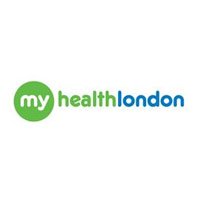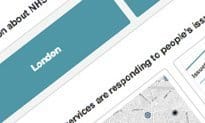Third of London GPs use myhealthlondon
- 30 March 2012

More than a third of GP practices in London have registered with the GP compare site myhealthlondon, exceeding expectations for the three months after its launch.
The site shows how practices are performing against national standards such as childhood immunisations and cervical screening, as well as how they compare with other London practices.
Each practice has its own myhealthlondon webpage, which can be customised to showcase its work and keep the public informed about clinics and services.
This week, the site is also launching “intranet-style” pages for all practices. These will include a “marketplace” of information and tools to support GPs.
NHS London said that since myhealthlondon’s launch in early December, 571 practices – or 38% of all practices in London – have registered to use the site.
There have been nearly 28,000 unique visitors and more than 275,000 individual page views. In a recent survey, 67% of GPs said they liked it.
Myhealthlondon also won an outstanding achievement award in the 2011 Interactive Media Awards, which London GP Dr Phil Kozcan, who helped to develop the £120,000 project, said was a great achievement.
“The fact that we have got 38% of practices signed up so far [means we are] well ahead of expectations,” he said.
“There has been very little negative feedback. I would like to think that’s because there was a lot of engagement with practices beforehand.”
Staff engaged with the local medical committees, clinical commissioning groups and independent practices during the development of the site.
“There was a lot of concern initially that we might get a lot of negative feedback from making indicators more publicly available, but that hasn’t been the case and practices are continuing to sign up,” Dr Koczan added.
“I have had some very good feedback from patients who have used it. We have redirected our practice website to that page, so patients will go straight to the page and be able to navigate from there.”
Dr Kozcan’s practice offers online repeat prescription orders and appointment bookings through links on myhealthlondon.
He said he was keen for practices to work with their patient participation groups to encourage them to use the site, by providing information about support groups and publicising services.
He argued that increasing transparency of information for patients was important and should be done with clinical involvement.
“The key is making data available in an easily accessible format, so patients can easily understand it, but also making it customisable to a local population, so practices can address the reasons why they have particular challenges [and explain] what they are doing to address them.
“It’s about really creating a one-stop-shop for patients. It gives them access to the outcome standards, but also enables them to communicate with practices. That means access to appointments and repeat prescriptions and, potentially, online records as they develop.”




